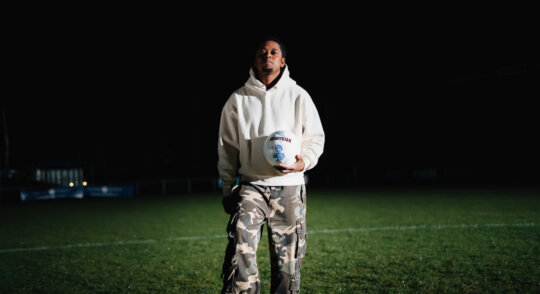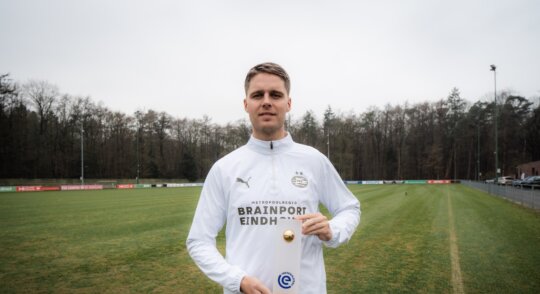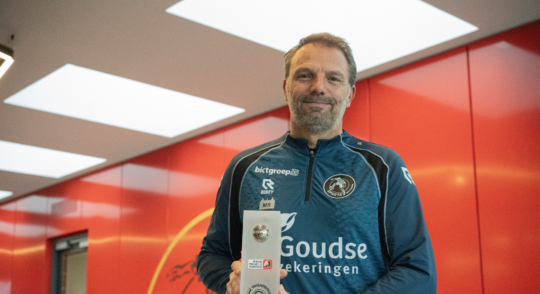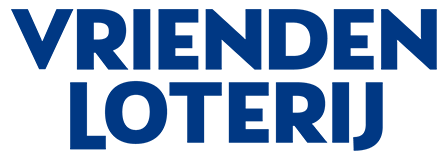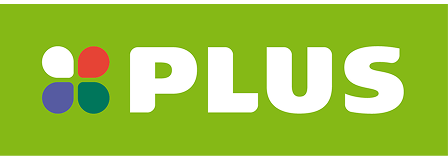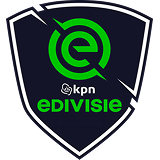Professional football has reached more people than ever before with its social programmes. The social impact report 2024/’25, prepared in collaboration with research partner Utrecht University, reveals that the 34 clubs in the VriendenLoterij Eredivisie and Keuken Kampioen Divisie jointly reached out to 186,406 participants: an increase of 15% compared with last season (161,969). The number of programmes also grew by 8% while the commitment of players increased by 19%. In addition, 213 FTEs worked full-time on social impact, an increase of 34%.
Marc Boele, director of CED (Coöperatie Eerste Divisie): “Professional football has an inherently social intrinsic power. It connects and unites people, neighbourhoods and generations in a unique way. In addition, the figures demonstrate that clubs are actively fulfilling their social role through many initiatives both on and off the pitch. They also show that making a social impact has now become an integral component of professional football."
The total investment in social programmes was €9.9 million (+10%), with 330 programmes that promote physical, social and mental health. The theme of health has played a key role in the social strategies of both divisions since the 2024/’25 season. The urgency is great: half of adults are overweight, one in three young people experience mental health issues and 40% regularly experience loneliness. According to the Netherlands Sports Council (NL Sportraad), physical inactivity leads to 5,800 premature deaths and €2.7 billion in avoidable healthcare costs each year. The Dutch Council for Health and Society (RVS) also cautions against a ‘hyper-nervous society’, where the constant pressure to perform and be accessible contribute to mental health issues estimated to cost society more than €18 billion a year.
Under the banner of Positive Health the divisions, together with social partner VriendenLoterij and clubs, are working on programmes to increase the physical, mental and social resilience of individuals. Research performed by Utrecht University shows significant improvements in participants across all six dimensions of Positive Health. “The figures show that professional football effectively contributes to enhancing the health of Dutch people. This is due to football clubs acting as a strong social anchor in people's lives,” according to senior lecturer Maikel Waardenburg.

Examples of impactful programmes
Impactful social programmes show clear results. PSV Vitality 12 weeks increased the participants' experienced fitness score from 5.9 to 7.7. In the AZ Football Buddies programme, 234 volunteers attended matches together with people who felt socially isolated. At FC Eindhoven and TOP Oss, among others, participants experienced higher levels of fitness and built new social contacts at Walking Football sessions. In addition, through the Community Champions programme, which reached 3,667 participants (12–30 years) clubs encouraged young people to enter education or employment or take part in voluntary work. Of this number, 97% completed the 16-week programme (nationally 89%), achieving an average score of 8 and a financial benefit of around €5,000 per participant (up to €30,000 in some cases).
Appeal to politicians and partners
Jan de Jong, director of the Eredivisie CV, calls for football to be seen as part of the solution to social issues: “Football belongs to everyone and is there for everyone. It enables us to reach out and create connections on a scale that few other sectors can match. This report reveals that football is more than simply a game. It is a powerful tool that can really tackle and solve social issues. Football helps, connects, heals, unites and also generates money for society. We therefore appeal to the public sector, companies and social partners to join us and make a difference."
About the Impact Report
The Impact Report 2024/’25 was prepared by the Eredivisie CV and the Coöperatie Eerste Divisie in collaboration with Utrecht University. View the full report here.
Read more
